Linette Lopez – January 21, 2024
2024 is the year of the incredible shrinking China.
The country’s growth has been treated like an inevitability for decades. Everything was getting bigger — its cultural influence, geopolitical ambition, population — and seemed poised to continue until the world was remade in China’s image. The foundation for this inexorable rise was its booming economy, which allowed Beijing to throw its might around in other areas. But now China’s economy is withering, and the future Beijing imagined is being cut down to size along with it.
The clearest sign of this diminishment is China’s worsening deflation problem. While Americans are worried about inflation, or prices rising too fast, policymakers in Beijing are fretting because prices are falling. The consumer price index has declined for the past three months, the longest deflationary streak since 2009. In the race for global economic supremacy, deflation is an albatross around Beijing’s neck. It’s a sign that the Chinese economic model has well and truly run out of juice and that a painful restructuring is required. But beyond the financial problems, the sinking prices are a sign of a deeper malaise gripping the Chinese people.
“China’s deflation is the deflation of hope, the deflation of optimism. It’s a psychological funk,” Minxin Pei, a professor of political science at Claremont McKenna College, told me.
The fallout won’t be contained to China’s shores. Because the country’s growth sent money stampeding around the globe over the past few decades, its contractions are creating a seesaw effect in global markets. The foreign investors who helped to power China’s rise are running to avoid catching the funk on their balance sheets, and governments the world over are starting to question the narrative of China, the dauphin. What Beijing does — or fails to do — to fight this malaise will determine the course of humanity for decades to come.
Flirting with disaster
It may seem counterintuitive, especially given the Western experience of the past few years, but deflation is in many ways scarier than inflation. Inflation occurs when there’s too much demand for too few products — people want to buy things, but there simply isn’t enough stuff to go around. By contrast, deflation happens when there are plenty of goods and services available but not enough demand. Businesses are then forced to slash prices to entice consumers to come out and spend. Every economy sees recessions or downturns — periods of declining demand and sinking confidence that force companies to put their wares on sale — but sustained deflation is what happens when those maladies make themselves at home and decide to stay.
China’s deflation worries started in earnest in the summer. Consumer prices contracted 0.3% in July compared with the same month a year before — something that hadn’t happened since the depths of the pandemic. While other advanced economies were taking off too fast, China was showing signs that it might be getting stuck. Prices seemed to stabilize in August — until pork prices started to decline dramatically, pushing down the aggregate price index in October, November, and December. There was some hope for policymakers, though, since much of the deflation was driven by pork prices, which are extremely volatile in China. But recent data shows that core inflation, which excludes more volatile categories such as food and energy, is similarly anemic, rising just 0.6% year over year in December.
Charlene Chu, senior analyst at Autonomous Research
Charlene Chu, a director and senior analyst at Autonomous Research, said the major question for Beijing was whether the price declines would continue into 2024 or whether the country could reignite some demand. She wasn’t hopeful for the latter.
“I lean toward deflationary pressures continuing to build, but the data continuing to go back and forth through the year,” Chu told me via email.
China’s primary problem, though, is debt, particularly in the real-estate sector, which makes up 25% to 35% of the country’s GDP. Years of overbuilding — by about double the population, according to some estimates — and slowing population growth caused prices to collapse. The real-estate trouble has ravaged the balance sheets of Chinese households — many of which have sunk a massive proportion of their savings into property — and cast a pall on the rest of the economy.
“Chinese people have 70% of assets in housing, so you can imagine the effect on confidence,” Wei Yao, the chief economist at Société Générale, told me. “This is the factor why this deflation could be long-lasting.”
Seeing their investments tank has led many people to stop spending. Fifteen years ago, Wall Street assumed that the Chinese consumer would ultimately become the dictator of the global economy. Now they’re in hiding. Even as the country emerged from the deep freeze of its “Zero COVID” policy, retail sales growth was disappointing compared with some analysts’ projections.
“I think it is unrealistic to believe that deflationary pressure will disappear when there is still so much pressure on property prices and consumers are in savings mode,” Chu said.
Now I’m trapped
In 2002, Ben Bernanke, who went on the chair the Federal Reserve, gave a seminal speech about how to combat deflation. As an economic historian, he spent his academic career studying the Great Depression — the mother of all deflationary events — and based on his research, he had come to a few conclusions. I’ll give you a few that are relevant to China’s current situation:
- Deflationary events are rare, but even moderate deflation — “a decline in consumer prices of about 1% per year,” as Bernanke put it — can zap growth out of an economy for years.
- In a deflationary economy, debt becomes more onerous to pay back because money is scarcer, a situation known as “debt deflation.”
- The “prevention of deflation is preferable to having to cure it.”
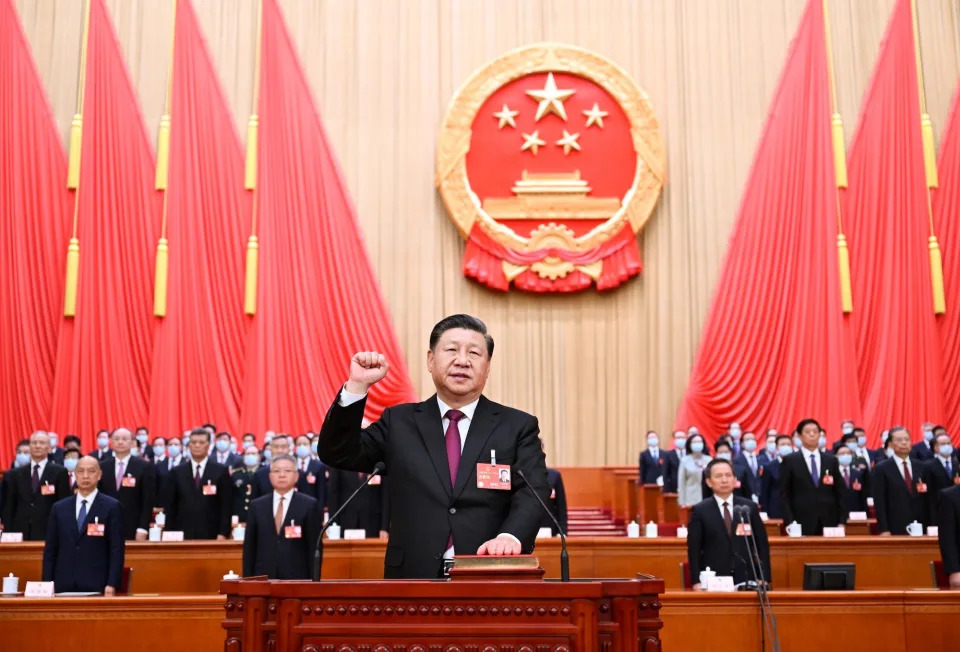 Xi Jinping refuses to try the policies that could help pull Chinse out of its national economic malaise.Xie Huanchi/Xinhua via Getty Images
Xi Jinping refuses to try the policies that could help pull Chinse out of its national economic malaise.Xie Huanchi/Xinhua via Getty Images
Japan is a more-recent example of the deflation trap. Japan is maybe, just maybe, getting out of a 25-year dance with the deflation demon. After decades of supercharged growth, the country’s economy collapsed in the 1990s because of heavy debt and an aging population. Together, those forces pushed the country into deflation, kept wages suppressed, and dampened consumer spending. Sound familiar?
What we learned from Japan’s years of stagnation is that once deflation sets in, the only way out is through a painful restructuring of debt. Société Générale’s Yao told me that if Beijing quickly embarked on such an anti-debt campaign, it could prevent the funk from setting in. The problem is we have yet to see evidence that the Chinese Communist Party is willing to do that.
Fire? What fire?
Of course, if the Chinese Communist Party asked Bernanke what to do about deflation, he’d probably tell them to take dramatic action yesterday. Spray the money gun, start dropping cash from helicopters, get people spending again. Deflation can only be slayed by boosting demand. But the CCP’s unwillingness to directly help Chinese households, even in the depth of the COVID-19 crisis, makes this kind of support unlikely.
“China gave no fiscal support during the pandemic,” Yao reminded me during our talk. “Every other large economy gave some kind of stimulus.”
Sure, Beijing has taken measures over the past year to loosen financial conditions for banks and state-owned businesses. It has also cut interest rates a little bit and given a $140 billion lifeline to struggling local governments. But wonky supply-side mechanisms take time to make their way into the lives of normal people and spur demand — if it happens at all. At best, they can keep deflation from taking hold, but they can’t turn it around to growth.
“Any true acceleration next year will require either a major global upside surprise or more active government policy,” analysts at China Beige Book, a surveyor of the Chinese economy, said in a recent note to clients.
It’s not as if the CCP is in the dark about the economy’s struggles. China’s leader, Xi Jinping, even made mention of the reality that Chinese people were suffering financially during his New Year’s speech — a first for him. And while the party’s apparatchiks may seem stoic as they announce that China’s GDP growth is meeting expectations, their softer tone and more aggressive courting of international business belies their concern. The question is, if Beijing knows how bad things are getting, why aren’t they doing more?
Analysts are split on why there’s been no fiscal support to households. In a research note published in August, Logan Wright, an analyst at Rhodium Group, argued that China’s ability to deliver fiscal stimulus was greatly overestimated. Beijing’s levers “are far more impaired than commonly understood,” Wright told me in a recent phone interview. “The problem is that China doesn’t collect much tax outside of its investment-led growth model,” he added. Up to its eyeballs in debt obligations and without a robust fundraising mechanism, Beijing doesn’t have the cash bazooka it once did.
But there’s another, perhaps bleaker, possibility. It’s not that Beijing can’t deliver stimulus, it’s that it simply won’t do it. Xi doesn’t believe in direct cash payments to people. And now, since all of China is run by a one-man band, that’s all that matters.
“I reached the conclusion that there is a bit of ideology,” Yao told me. “In a sense, Xi Jinping wants to develop his own economic order. He’s trying to avoid making the same mistake as the West, which is wasting money and spending things that don’t generate long-term returns. In that perspective, sending checks to households doesn’t generate long-term returns.”
Maybe it’s a little of both. There have been times in the history of the Chinese Communist Party when different factions — reform vs. anti-reform — had the space to debate and change the government’s course on policy. In Xi’s China, that space is gone, shrunk into whatever can fit in the palm of his hand.
It’s not just the economy
Under Xi, all kinds of spaces in China have gotten smaller. (OK, it’s not his fault that the population is shrinking.) But his government has led to the narrowing of any space beyond the reach of the CCP. That includes the arts and intellectual life, a variety of forms of individual expression, and private business. China before Xi was a place learning to handle a plurality of voices — as long as they weren’t brazenly attacking the country. China during Xi is a place where people online speak in code to express even their minor dissatisfaction, only to watch CCP censors rub their words away.
“Chinese people have to shrink their ambitions,” Claremont’s Pei told me. “People in the government should have their ambitions scaled dramatically.”
This ideological shrinking is taking many forms: Beijing’s nominally anti-corruption drive is back in full swing, ensnaring officials from all over the government who strayed from the Xi line. Billionaire businesspeople are on notice that their wealth will no longer protect them from the CCP’s harsh gaze. Foreign investors are running for the hills. Even China’s flagship One Belt One Road infrastructure loan program has been pared down. “They’re not bestriding the world anymore,” one former US diplomat posted in East Asia told me.
This doesn’t necessarily mean China poses no adversarial challenge to the US. It just means Beijing is prioritizing where it invests in that competition. Xi will not back off from investing in the military because reunification with Taiwan remains his paramount goal. The central government will continue to invest in technology and in advancing industries where it thinks it can press any first-mover advantages. Think: electric cars, batteries, and solar panels.
“We don’t think the US faces a growth challenge from China anymore at this stage,” Rhodium Group’s Wright said. “The concern from the US and Europe are the spillovers from excess capacity.” In other words, China will pick its fights more selectively and defend its economic advantages more fiercely. A world built larger through global financial connections will disconnect and disperse into smaller nodes.
Do not expect a shrinking China to be a shrinking violet. Outside loaning money, magnanimity has never been Beijing’s strong suit. The slights that smarted when it was a growing superpower will only hurt more in shrunken stature. Xi will never let go of saving face. That’s the nature of a one-man reign.
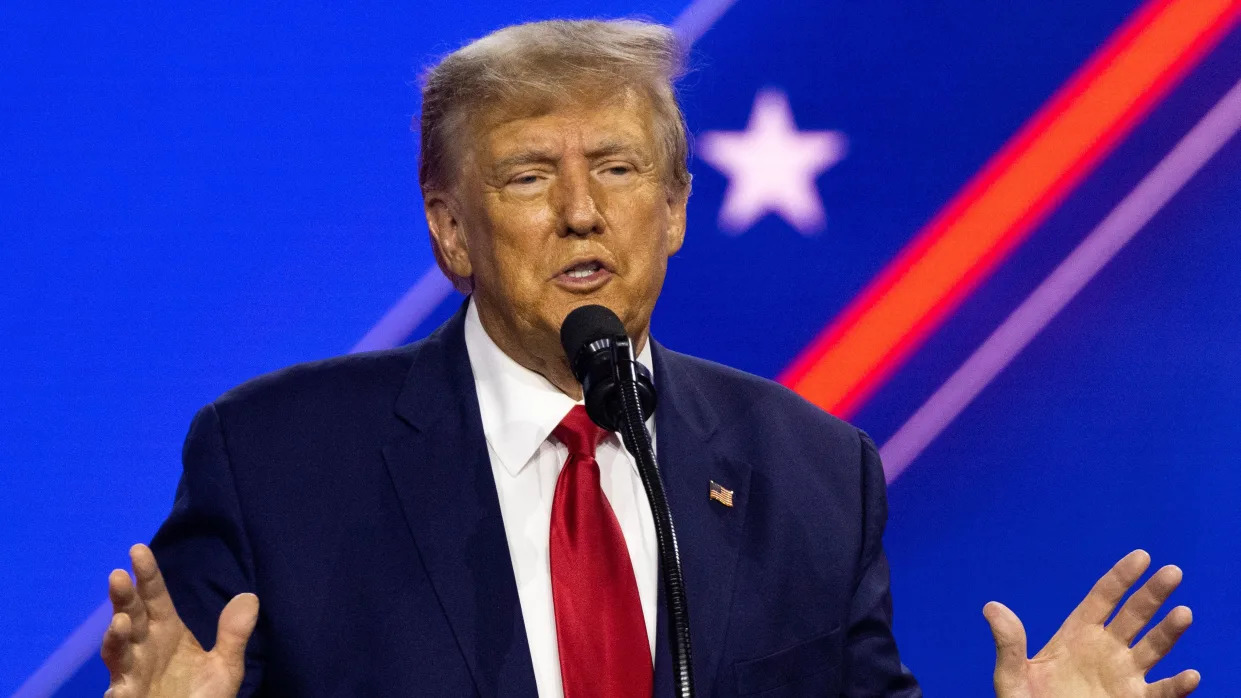
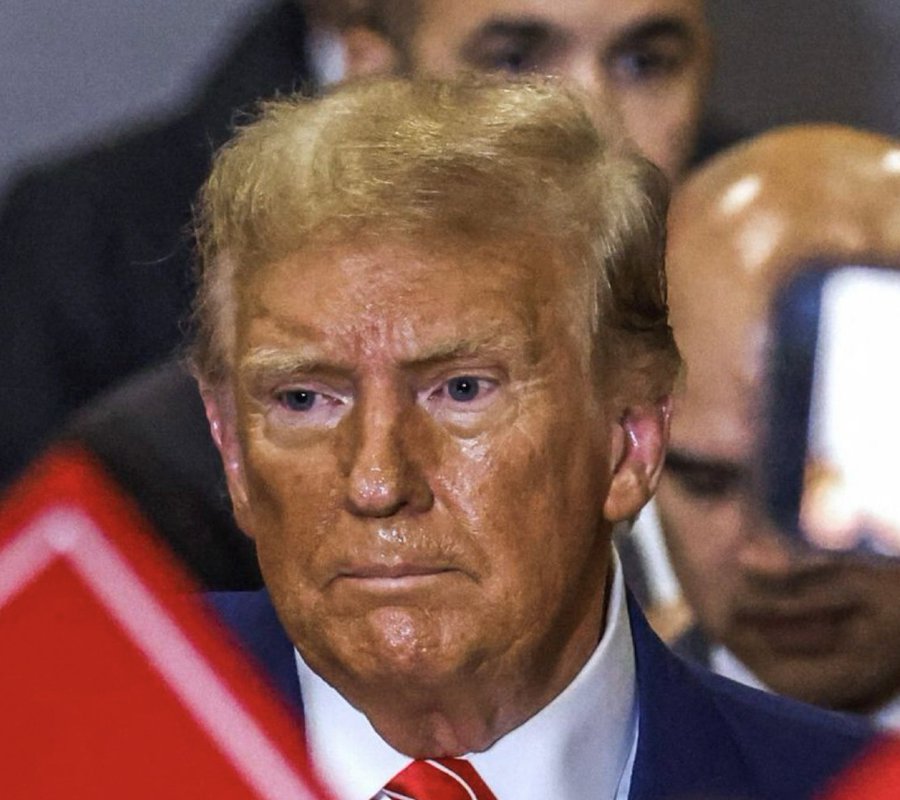

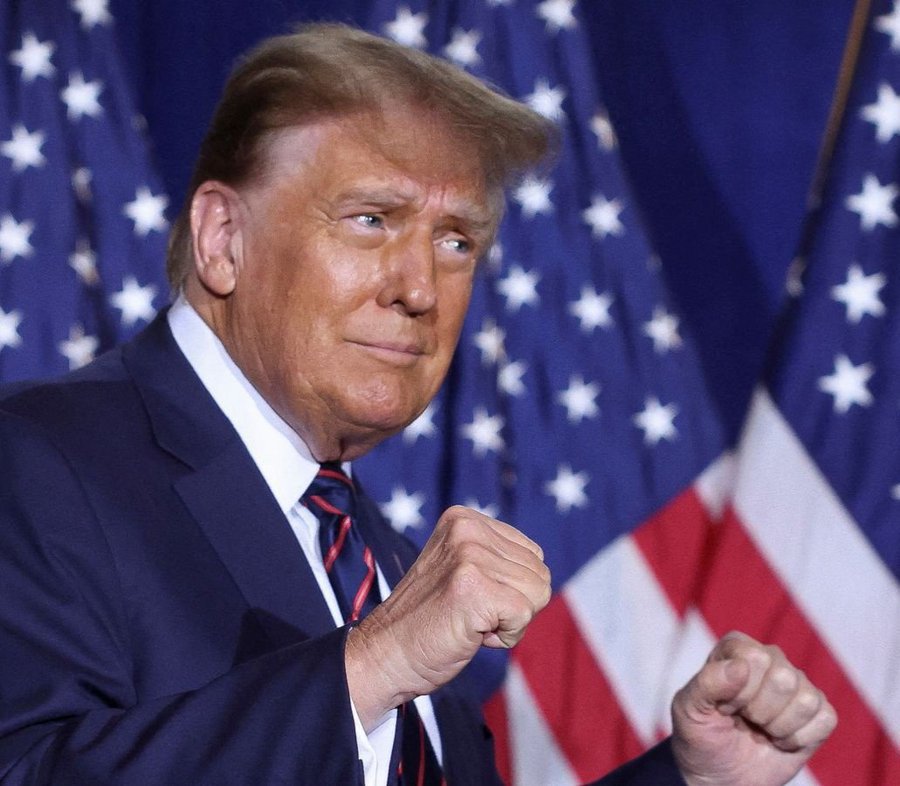












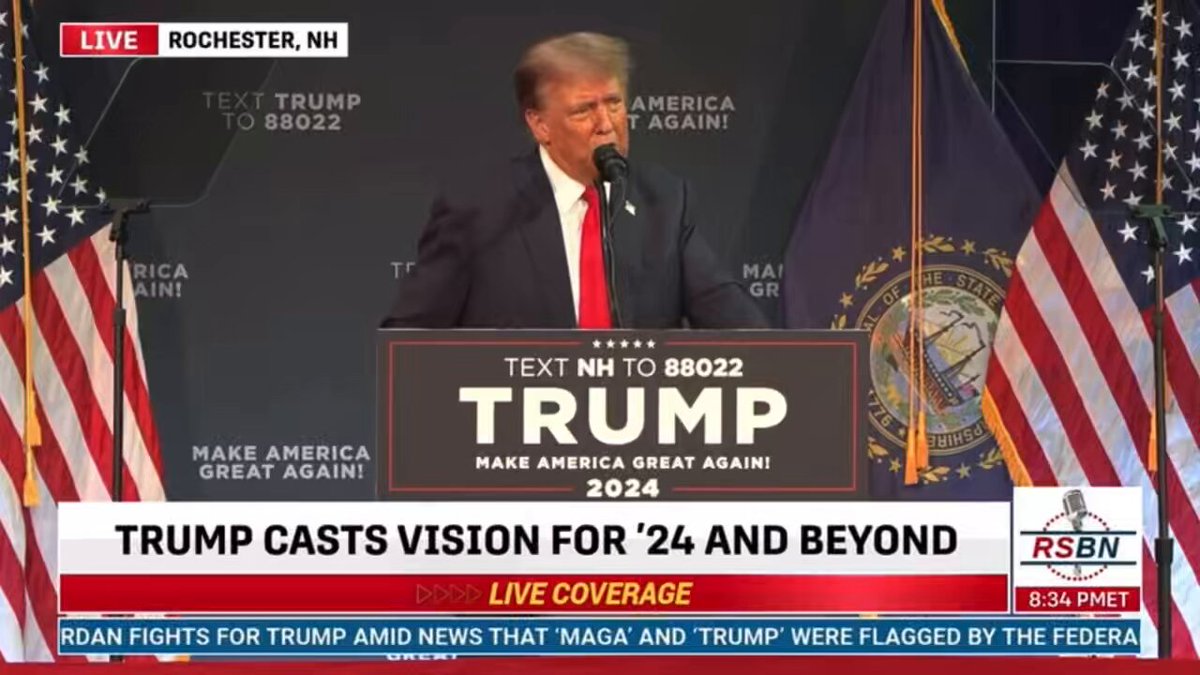

 Xi Jinping refuses to try the policies that could help pull Chinse out of its national economic malaise.Xie Huanchi/Xinhua via Getty Images
Xi Jinping refuses to try the policies that could help pull Chinse out of its national economic malaise.Xie Huanchi/Xinhua via Getty Images